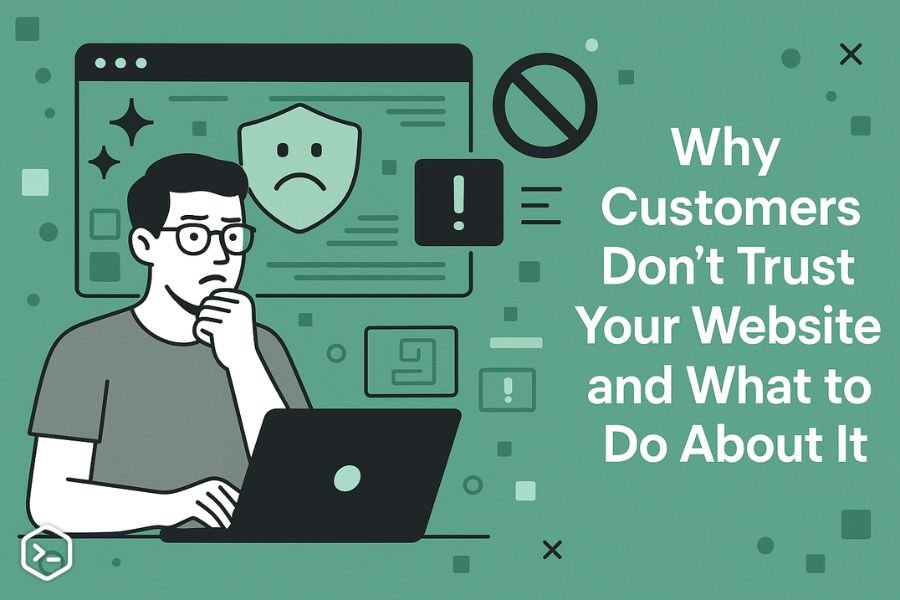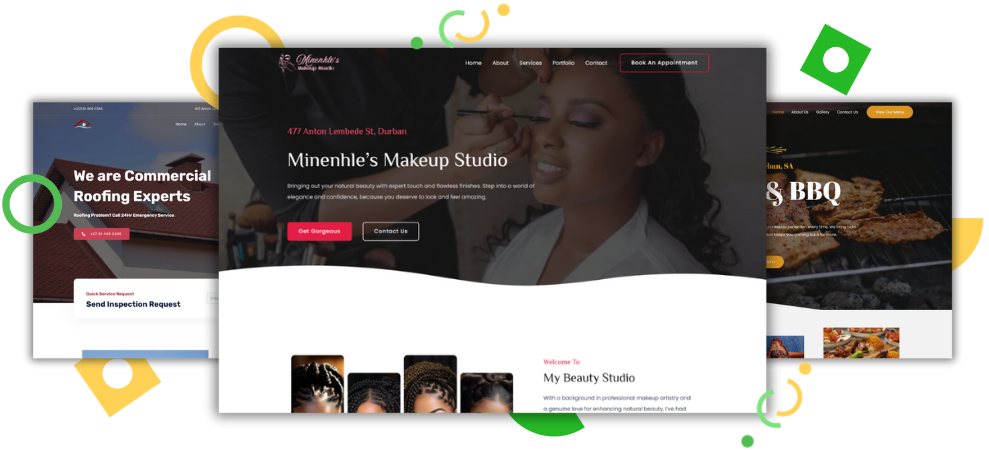Choosing the right platform to build your website can be a daunting task, especially when there are so many options available. Three of the most popular platforms for website creation are WordPress, Shopify, and Wix. Each one has its strengths and weaknesses, and the right choice depends on your specific needs. In this article, we’ll break down everything you need to know about these platforms to help you make an informed decision.
What is WordPress?
WordPress is the world’s most popular content management system (CMS). Originally created as a blogging platform, it has evolved into a powerful tool used to build everything from blogs to e-commerce sites.
WordPress is open-source, meaning anyone can use it for free and customize it according to their needs. However, while WordPress itself is free, you will need to pay for hosting, a domain name, and any premium themes or plugins you want to use.
Pros of WordPress
- Flexibility and Customization: One of the biggest reasons people choose WordPress is its flexibility. With thousands of themes and plugins, you can customize your site to look and function exactly how you want.
- Scalability: WordPress allows your website to grow as your business grows. You can easily upgrade your hosting, add more features, and even migrate your website to a different host if needed.
- Huge Community Support: Since WordPress is open-source, it has a large community of developers and users who constantly contribute to its improvement. If you run into any issues, you can find countless tutorials and guides online.
- SEO-Friendly: WordPress is well-known for being highly SEO-friendly. With the help of plugins like Yoast SEO, you can optimize your content, meta descriptions, and keywords with ease, making it easier for your site to rank in search engines.
Cons of WordPress
- Learning Curve: Although WordPress is user-friendly, it may still take some time to get used to, especially if you want to dive into more advanced customization options.
- Security Issues: WordPress sites are often targeted by hackers due to their popularity. However, you can enhance your website’s security by using security plugins and following best practices.
- Maintenance: You’ll need to regularly update your themes, plugins, and WordPress itself. If you don’t stay on top of updates, you might run into issues down the line.
What is Shopify?
Shopify is an e-commerce platform designed for people who want to build an online store quickly and easily. Unlike WordPress, Shopify is not a general-purpose website builder; it is specifically built for online selling. It offers a range of themes and apps designed to help you set up, run, and grow your online business.
Pros of Shopify
- Easy to Use: Shopify is known for its user-friendly interface. Even if you don’t have any technical knowledge, you can set up your store and start selling in just a few hours.
- Built-in E-commerce Features: Shopify comes with all the tools you need to run an online store, including payment processing, shipping, and tax management. You don’t need to worry about installing additional plugins.
- Secure and Reliable: Shopify provides SSL encryption for your store, ensuring that your customers’ data is safe. The platform also handles hosting, meaning you don’t have to worry about server maintenance or downtime.
- Scalable: Shopify offers different pricing plans to match your business needs. As your business grows, you can upgrade your plan to access more features and capacity.
Cons of Shopify
- Costs Can Add Up: While Shopify is easy to use, it is also one of the more expensive options out there. The basic plan starts at $29 per month, and you’ll also need to pay for additional apps, themes, and transaction fees.
- Limited Customization: Although Shopify is great for building an online store, it lacks the customization options of WordPress. You can only do so much with the themes and apps available on the platform.
- Transaction Fees: Shopify charges a transaction fee unless you use their own payment processor, Shopify Payments. This could eat into your profits, especially if you’re running a smaller store.
What is Wix?
Wix is an all-in-one website builder designed for users who want a simple and hassle-free way to create a website. It offers a drag-and-drop editor, making it easy to build a website without any technical skills. Wix can be used to create both personal websites and online stores, though it is more commonly used for simple sites like blogs, portfolios, or small business websites.
Pros of Wix
- User-Friendly: Wix is incredibly easy to use. Its drag-and-drop editor means that even a beginner can design a website with no coding skills required.
- All-in-One Solution: Wix provides hosting, domains, and even SEO tools all within its platform. You don’t need to worry about managing different services for your website.
- Affordable: Wix offers a range of pricing plans, including a free plan, making it one of the most affordable website builders out there.
- Design Flexibility: Wix gives you complete control over the design of your website. Unlike some website builders, Wix doesn’t lock you into a grid, so you can place elements wherever you want.
Cons of Wix
- Limited Scalability: While Wix is great for small websites, it can be difficult to scale as your business grows. It doesn’t offer the same level of flexibility and features as WordPress or Shopify.
- Lack of E-Commerce Features: While Wix does offer an e-commerce solution, it’s not as powerful or feature-rich as Shopify. If you’re planning to run a larger online store, Wix might not be the best option.
- SEO Limitations: Although Wix has made significant improvements to its SEO features, it still lags behind WordPress in terms of advanced SEO capabilities.
Which Platform is Best for Your Website?
Now that we’ve looked at the key features of WordPress, Shopify, and Wix, let’s discuss which platform is best for different types of websites.
What’s the Best Platform for an E-Commerce Store?
If you’re looking to build a serious e-commerce website, Shopify is probably the best choice. It’s specifically built for online stores and offers all the tools you need to sell products, manage inventory, and handle payments. Plus, Shopify takes care of hosting and security, so you don’t have to worry about the technical side of things.
That said, if you’re looking for more customization and are willing to put in some extra effort, WordPress with WooCommerce can be a great option. WooCommerce is a plugin that adds e-commerce functionality to your WordPress website, and it can be tailored to fit the needs of your store.
Wix, on the other hand, is better for smaller, simpler online stores. While it offers e-commerce features, it’s not as powerful or scalable as Shopify or WordPress with WooCommerce.
What’s the Best Platform for a Blog?
If you want to start a blog, WordPress is hands down the best choice. It started as a blogging platform, and it remains the most popular choice for bloggers today. WordPress offers excellent customization options, an array of plugins for adding features, and SEO tools to help your blog rank higher in search engines.
While Wix does offer blogging features, it’s not as powerful or flexible as WordPress. Shopify is not ideal for blogging, as it’s more focused on e-commerce.
What’s the Best Platform for a Small Business Website?
For a small business website, all three platforms can work, depending on your needs. Wix is ideal for small businesses looking for a simple, affordable website that’s easy to set up. It offers beautiful templates and plenty of customization options for small business owners.
WordPress is a good option if you want more control over your website and are willing to invest more time in customization. It’s also great if you plan to scale your business in the future.
Shopify is best for businesses that plan to sell products online. If your small business focuses on e-commerce, then Shopify is a solid choice.
Frequently Asked Questions
-
Which platform is best for beginners?
For beginners, Wix is the easiest to use. It’s drag-and-drop, and you don’t need any technical skills to get started. Shopify is also beginner-friendly but requires a bit more investment, especially if you’re planning on setting up an online store. WordPress has a steeper learning curve, especially if you want to customize your site.
-
Can I switch between platforms?
Yes, it is possible to switch platforms, but it can be tricky, especially if you’ve built a lot of content. It’s always best to plan ahead and choose the platform that best fits your long-term goals.
-
Which platform is best for SEO?
WordPress is the best platform for SEO. It offers excellent tools for optimizing your website, including plugins like Yoast SEO, which help you improve your rankings on search engines. Shopify and Wix both offer SEO features, but they’re not as powerful as WordPress.
-
Can I create a website without any technical knowledge?
Yes, with Wix and Shopify, you can easily create a website without any technical knowledge. WordPress requires a bit more learning, but it’s still possible to build a site without coding skills, especially if you use a pre-made theme.
-
Can I sell products on WordPress or Wix?
Yes, both WordPress (via WooCommerce) and Wix offer e-commerce capabilities. However, Shopify is the best platform for building a full-fledged online store.
By now, you should have a clearer idea of which platform suits your needs. If you’re looking for flexibility and control, WordPress is your best bet. If you want a hassle-free e-commerce experience, Shopify is the way to go. For a simple, quick website setup, Wix is an excellent choice. Each platform has its strengths, so it all comes down to what’s most important for you. Happy website building!








3 Comments
Thanks for sharing. I read many of your blog posts, cool, your blog is very good. https://accounts.binance.com/register-person?ref=IXBIAFVY
Your article helped me a lot, is there any more related content? Thanks! https://accounts.binance.com/ph/register?ref=IU36GZC4
Thanks for sharing. I read many of your blog posts, cool, your blog is very good. https://accounts.binance.com/ru-UA/register?ref=JVDCDCK4